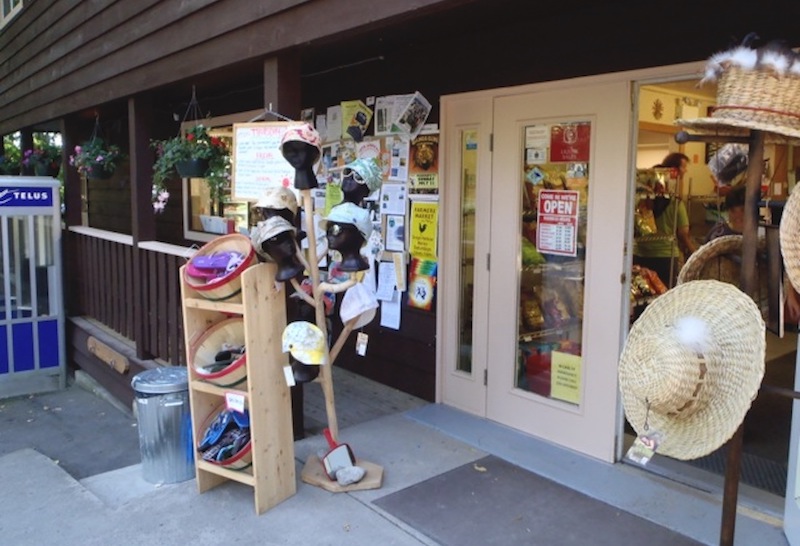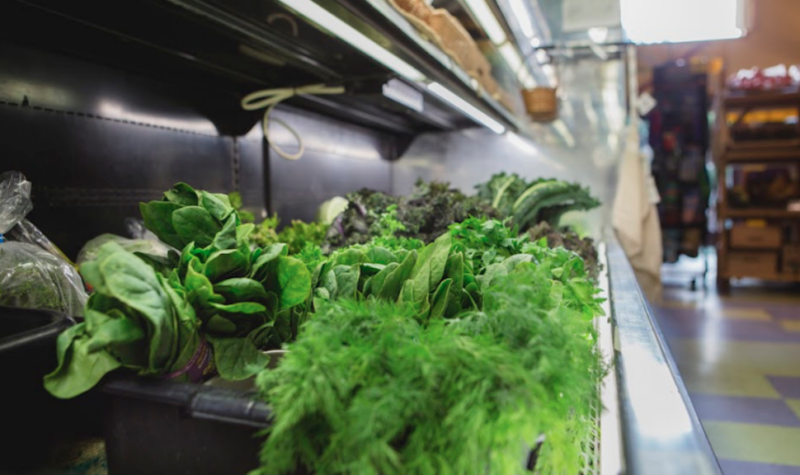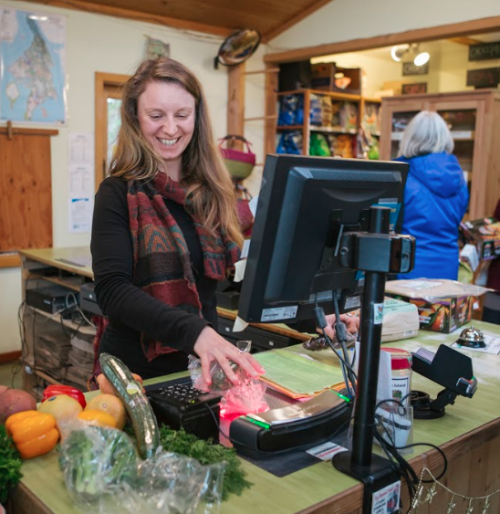By Max Thaysen
In this episode, we get a deep dive from Eric Hargrave, manager at the Cortes Natural Food Cooperative, and Bill Dougan, manager at the Gorge Harbour Marina Resort General Store. These are two fellows who run grocery stores and have given a lot of thought to the modern food chain. They present their insights with wit and charm. Together we explored the impacts that the Covid-19 pandemic has had on their lives and their businesses. I was especially curious about the pandemics impacts on frontline workers — those working the tills and stocking shelves.
We began with understanding all the new stresses, responsibilities and risks associated with the job and how the managers are supporting the workers through this.
How Society Values Those Workers
I wondered how society valued — and compensated — these workers before and how that might be changing now. Grocery workers on Cortes generally begin around $15-$16/hr, a little above the minimum wage in Canada. And after years of service, they may expect to climb as high as $18 or even $22/hr.
Bill wondered aloud how this compares to a construction worker, who may begin at $18 or $20/hr and climb quickly to $25 and eventually to $35-$40. Is this a gender biased valuation of different positions in society? What does it say about those values now that grocery workers are considered among the most essential front-line workers.
We talked about where the standard wages come from for grocery workers: supply and demand, competition in the grocery business, or/and an accident of history.

Exterior of the Gorge Harbour store during summer – courtesy Gorge Harbour.com
Cortes Residents Shopping On Island
Both managers told me that the encouragement to stay home has resulted in a lot more people doing their shopping on Cortes. This has been great for business.
They suggested that more people shopping locally would have many effects. More local food could be grown and sold, prices would fall because hard costs like shipping would be shared. Then wages could rise and jobs created. And more of the dollars that we spend for our necessary supplies would stay on Cortes and circulate around.
And we get some juicy insider information about whether there was panic buying, hoarding and how people’s shopping habits have changed, possibly for the better.
How Things Changed
And finally, reflecting on how much has changed with society in such a short amount of time, Bill tells us how we can change anything, and quickly, and it has been amazing to see that. Maybe we can even tackle the big challenges of our lifetime — biodiversity loss, climate change and human overshoot of planet earth.
Top photo credit: Courtesy Cortes Natural Food Co-op



